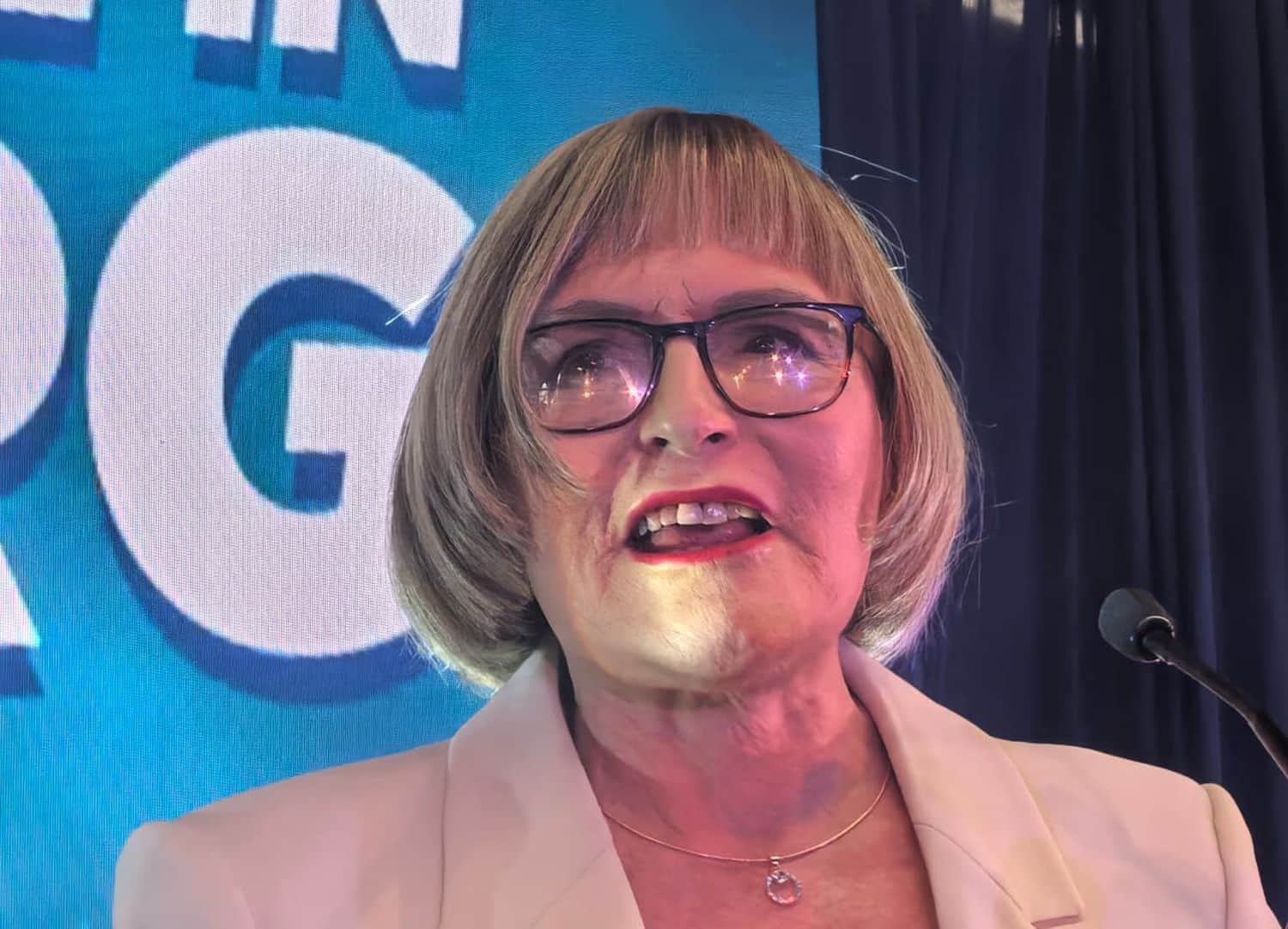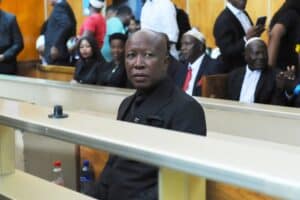Steenhuisen calls for ‘honest leadership’ as analysts warn of political hurdles.

While Helen Zille may be the “halo candidate” to spearhead the DA’s new assault on local government, is the mountain of mess which is Johannesburg even too high for her to climb?
While Zille certainly has the experience and the hard hand to turn around the city of Joburg, experts say there is simply not enough money to reverse the damage done.
DA leader John Steenhuisen over the weekend announced Zille as Joburg mayoral candidate.
“Joburg is crucial for our country. It simply must work. For too long, residents have suffered through dry taps, sewage spills, power cuts, crumbling roads and chaotic billing errors,” he said.
“Fixing these things is a basic function of a municipality. It is non-negotiable. A city as vibrant and resilient as Joburg should be thriving, not barely coping. What Joburg needs now is honest, experienced, accountable leadership.”
Joburg’s cash-strapped tax base
The DA turned around Cape Town and can do it for Joburg too, Steenhuisen said.
Political analyst Piet Croucamp said the tax base in Joburg “is just not what it used to be. The first instalment is R30 billion, just to get the pipes flowing”.
“To fix the whole water system is R200 billion. There is no money in the Joburg tax base for that. You can’t fix what has been destroyed,” he said.
Croucamp said that doesn’t even include the other challenges or the electricity in the city.
“On every level and sphere in Joburg, there are deep problems which we might not have money for,” he added.
ALSO READ: Helen Zille to run for Joburg mayor as DA vows to ‘wrestle city back’
Who will partner with the DA?
Political analyst Rene Oosthuizen said Zille’s “divisive public image significantly undermines her capacity to build the broad, inclusive support necessary in this diverse city”.
The upcoming local government elections were so much more than “a simplistic decay versus renewal narrative”, Oosthuizen said.
“This seriously distorts the complex, systemic local governance challenges rooted in inequalities. What is clear to me is that the DA’s dismissal of coalition politics clearly overlooks its essential role in fostering inclusive governance within a fragmented political landscape such as ours.”
Croucamp said ActionSA is growing in Soweto in the by-elections. “Herman Mashaba will stand as the mayoral candidate. So Zille can’t expect a coalition partner in them.”
The Patriotic Alliance is not a viable and feasible partner for them, and they are also a growing party. Often this type of party grows at the DA’s expense, he said.
It could mean that Zille ended up in the opposition benches.
“The question is, will she then stay there for the five years? It’s a tough task. “I think she considers this her last big job and I can’t think of anyone better to take on the challenge,” he said.
ALSO READ: MP tells Morero that ‘entire Johannesburg is rotten’
Can Zille create a halo effect?
Zille’s reputation, political capital and high visibility could create a halo effect strong enough to influence voter choices in other metros, come next year’s poll.
The halo effect is a psychological bias where the positive image of one person spills over onto others associated with them.
In politics, this means if a well-known leader is seen as competent or trustworthy, that perception can benefit their colleagues, even if voters know little about them.
The coattail effect works in a similar way, where a popular candidate at the top of a ticket helps pull less prominent candidates into office.
Psychologist Jonathan Redelinghuys said the two concepts combined can swing elections. “Think about it in social media influencer terms.
“The ANC has cashed in on the political capital of struggle heroes, former president Nelson Mandela and other stalwarts for years.
“But without delivery on the part of people riding on those reputations, it eventually dries up.”
Prodigal ‘daughter of Johannesburg’
Zille’s track record in municipal and provincial government and the sustained success of those that followed in Cape Town and Western Cape leadership, along with her ongoing visibility, has built a significant measure of trust, said Redelinghuys.
“Her nomination was received positively, so it can rub off on others in the same party. When people associate someone with competence or trust, those feelings can be transferred onto less familiar names on the ballot.
“Candidates with lower profiles can end up benefiting simply because they stand alongside a popular figure or compete in nearby cities,” Redelinghuys said.
Zille called herself a “daughter of Johannesburg”, the city where she was born. She contrasted the Johannesburg of opportunity in 1994, with the city residents face today.
“It was the place to be. Now, just over 30 years later, many of its own residents see it as a place to flee,” she said.
While her speech centred on Johannesburg, the impact may reach further with both the halo and the coattail effect at play.
There is no clarity yet on who will be the DA’s candidate in Ekurhuleni, or whether Cilliers Brink will be confirmed for Tshwane.
“It may not matter as much with Zille leading the charge in Joburg,” said Redelinghuys.
READ NEXT: ‘Let’s fix the basics of Jozi’ – Helen Zille eyes Joburg mayoral race






